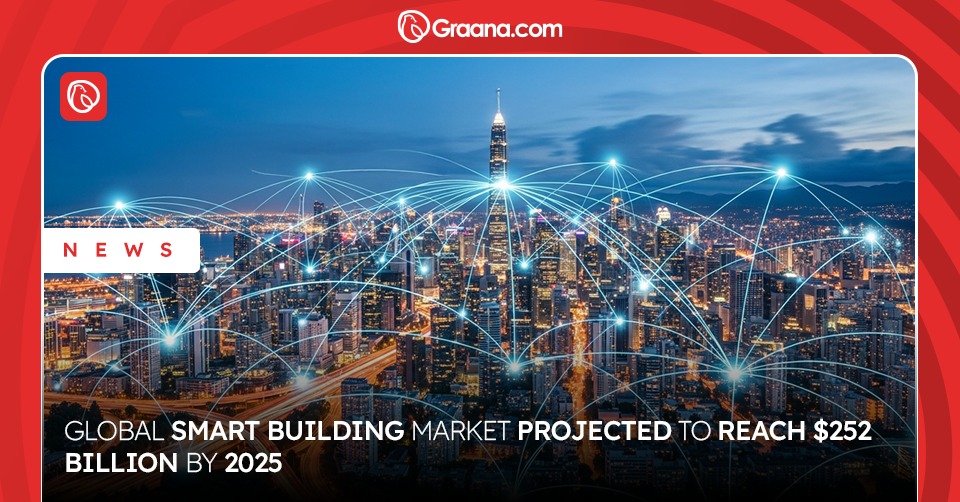
Source: Graana.com
The global smart building market is projected to grow by at least 21.8% in 2025, reaching a valuation between $117 billion and $252 billion, according to Xylem Vue. This growth is fueled by the adoption of advanced technologies such as artificial intelligence (AI), the Internet of Things (IoT), and sophisticated data analytics platforms that enhance operational efficiency and sustainability.
Smart buildings, integrated with ICT (Information and Communication Technology) systems, are reshaping how energy and resources are managed in urban areas. The shift toward urban sustainability is also being bolstered by district heating and cooling (DHC) networks, which are streamlining thermal energy distribution and enabling more effective use of renewable energy sources.
The integration of digital platforms is proving vital in managing and optimizing building systems in real-time—from lighting and air conditioning to parking and energy use. Emerging tools like digital twins and energy management systems are being widely adopted to predict maintenance needs and improve resource efficiency.
Fortune Business Insights projects a compound annual growth rate (CAGR) between 21.8% and 29.7% across key segments like energy management and security. Commercial buildings are expected to maintain a leading market share of 53% in 2025, driven by efficiency gains and reduced operational costs.
Beatriz Bolonio from Xylem Vue emphasized that leveraging data through integrated platforms is revolutionizing building management and enabling the development of greener, smarter cities.
In parallel, DHC networks are emerging as a critical component of smart cities, offering low-emission solutions through the integration of renewable sources and waste energy recovery. These systems allow for real-time adaptation to building-specific thermal needs while minimizing operational footprints and maintenance expenses.
With continuous monitoring and optimization, DHC and smart building platforms are helping urban areas transition to circular, energy-efficient models—placing them at the heart of future sustainable city planning.
Lahore: Punjab Chief Minister Maryam Nawaz Sharif has inaugurated the allotment process for free flats…
Lahore: The Punjab Revenue Authority (PRA) has begun the fiscal year 2025-26 on a strong…
Karachi: Pakistan’s foreign exchange reserves posted a slight increase during the week ending August 15,…
Lahore: The Punjab government has given the green light to the long-awaited PKR 50 billion…
The Punjab government has introduced another major initiative aimed at improving public convenience in Lahore.…
Lahore: The Provincial Development Working Party (PDWP) has approved development projects worth PKR 15.76 billion…